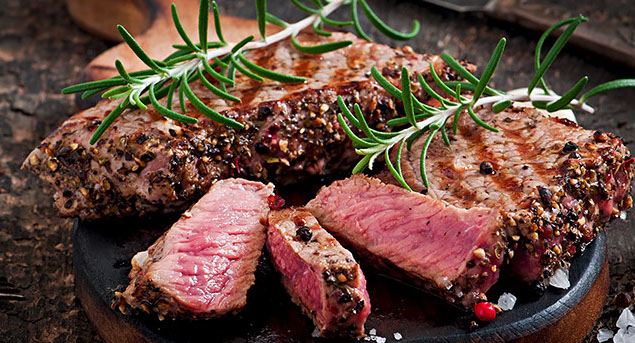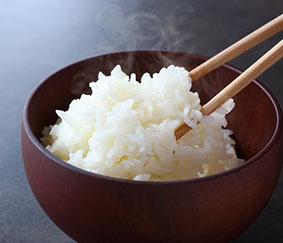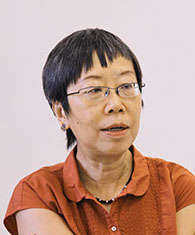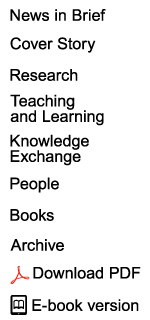
When nutritional science was introduced in China, nutritionists and scientists promoted more eating of meat, milk and eggs. People are suggested to switch from the traditional veggie-centric Chinese diet to Western diet.

WHEN ONE MAN’S MEAT IS ANOTHER’S POISON
The ‘ideal diet’ can be as much about identity and politics as science, as Professor Angela Leung has been discovering in her study of the introduction of nutritional science from the West into China in the early 20th century.
Beriberi (translated as leg-qi in Chinese), a disease causing inflammation of the peripheral nerves and heart failure, has been around since ancient times. In traditional Chinese medical texts, leg-qi was attributed to excess– too much humidity, too much food, too much alcohol, too much sex. But at the turn of the last century, Western biomedical science stepped in and challenged not only this interpretation, but a key aspect of Chinese and Asian identity: the eating of rice.

Scientists determined that beriberi was the result of vitamin B1 deficiency at a time when the study of vitamins was nascent. Experiments showed B1 was lost when rice was processed. Therefore, it was concluded that beriberi came from eating too much polished rice.
To Professor Angela Leung, Joseph Needham– Philip Mao Professor in Chinese History, Science and Civilization, of the Hong Kong Institute for the Humanities and Social Sciences, these conflicting assessments of beriberi reflected not only different approaches to medicine, but also the conflicting morals and cultures of colonialists and the colonised, and modernists and traditionalists.
“The scientific interpretation can be quite deceptive. We should look at the deeper cultural roots of the arguments,” she said.
“You can see there was a moral aspect to this on both sides. Up to the late 19th century in China, beriberi was seen as a disease that happened to wealthy people who overindulged.
“On the other hand, the patients that the Europeans saw were not wealthy, but soldiers and workers, especially migrant workers from China and Japan working on plantations in Southeast Asia. These scientists thought beriberi arose from the bad eating habits and ignorance of poor Asian workers.”

![]() The way you look at your body and treat your body is not only based on what you would call scientific knowledge, but also your identity… The scientific explanation of foods is not universal in terms of time or place and it is shifting all the time.
The way you look at your body and treat your body is not only based on what you would call scientific knowledge, but also your identity… The scientific explanation of foods is not universal in terms of time or place and it is shifting all the time. ![]()
Professor Angela Leung
A nation of weak bodies
Professor Leung has been considering these differences as part of a project funded by the General Research Fund that is looking at how nutritional science was introduced in China, who was involved in its introduction, and how it was received by the Chinese population.
In fact, the American and European scientists were not the key figures in promoting this new field in China. Chinese scientists, doctors and nutritionists who trained in the West in the early 20th century returned to their home country with new ideas about diet and food that they thought would advance their country.
Institutions were established to promote nutritional science, such as Peking Union Hospital, new departments of biochemistry in universities, and Western-supported institutes in China. A translation was also coined, yingyang, meaning, roughly, ‘constructive nourishment’.
“This term became extremely popular in many writings, especially after the Republican Revolution. The whole nation was talking about how to save China as a nation – that as a nation of weak bodies, we should improve the health of our citizens. But at the same time there was the question of national identity. What kind of food should we eat? What food is good and what is bad for the Chinese body?”
One controversial issue was the eating of meat. Traditionalists maintained that the Chinese diet was mostly vegetarian with only a little meat, and that it was healthy, cheap and better for the environment. But in the 1920s that view was challenged.


An official letter from a 1942 wartime Government committee to improve people’s food-intake.
A report on the preparation of a soybean milk powder for infants published in the Chinese Journal of Physiology in 1934.
The meat debate
“American-trained nutritionists and doctors and scientists were influencing government policies. They criticised the Chinese for being morally and physically weak because they didn’t eat enough meat,” Professor Leung said.
“When these experts promoted more eating of meat, milk and eggs, it meant eating a diet more similar to the Western diet. They were actually promoting a Western lifestyle.”
These views on the traditional Chinese diet changed, interestingly enough, as China’s status in the world changed. “When China became stronger, especially after the 1980s, there was a resurgence of traditional diets and a great promotion of what they called medicinal meals,” she said.
Professor Leung is also interested in the moral attitudes to nutritional science elsewhere in Asia and organised a conference last year and a forthcoming workshop that will result in a publication of collected articles on the topic. This will be separate to her own project, but aligned with her goal of providing a humanities perspective on a topic typically dominated by scientific and medical studies.
“The way you look at your body and treat your body is not only based on what you would call scientific knowledge, but also your identity – as a national citizen, a woman, a person of a certain age, an individual with all these identities,” she said. “The scientific explanation of foods is not universal in terms of time or place and it is shifting all the time.”

